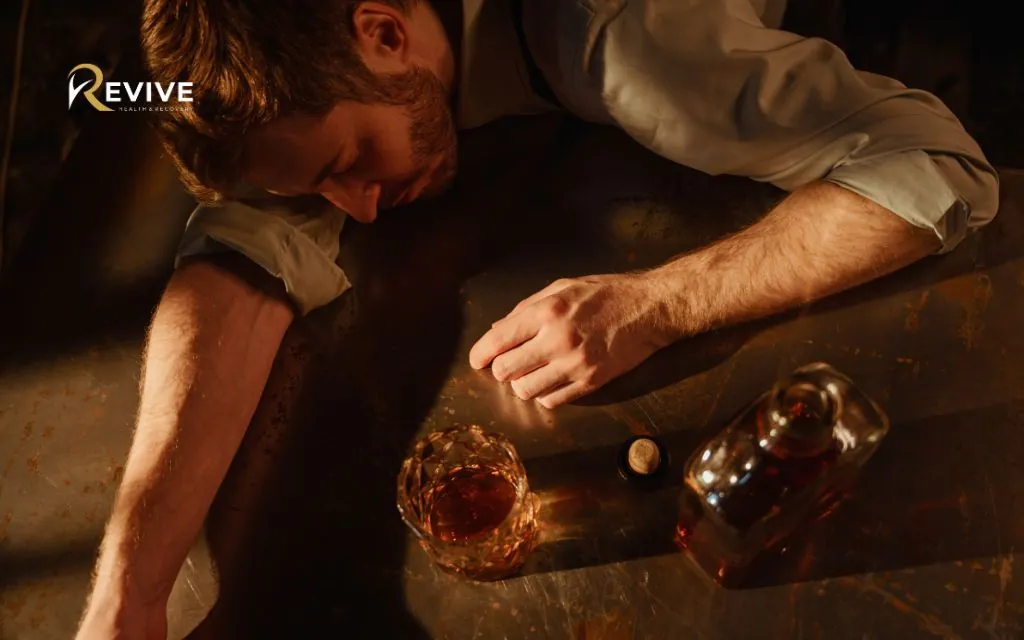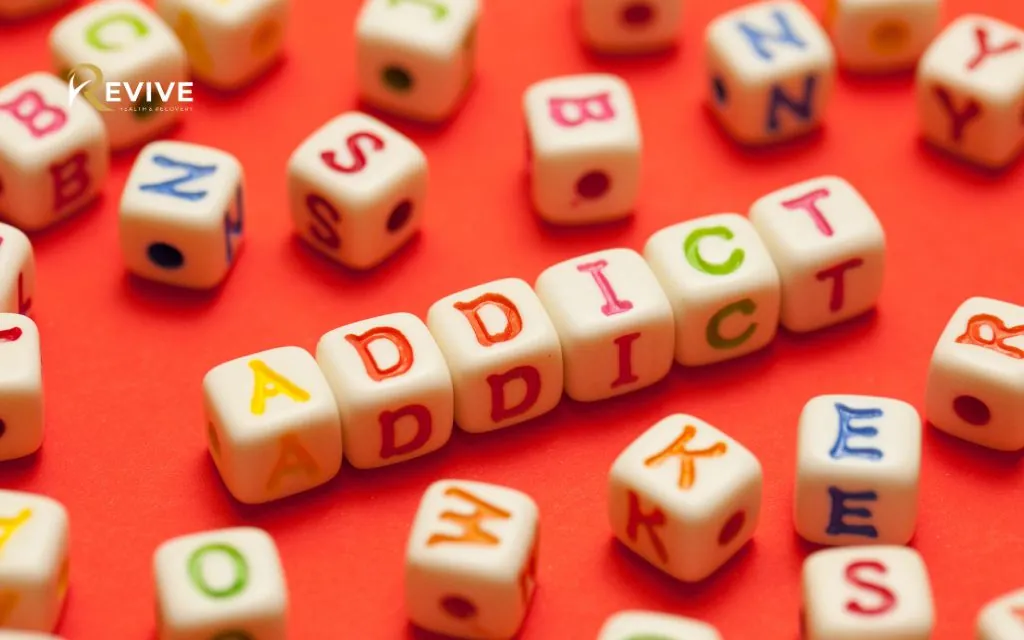Addiction is a big problem in the U.S., affecting millions of people and their families each year. No matter what type of addiction it is, all of them can hurt a person’s health, relationships, and happiness.
The good news is that seeking professional treatment can offer a new beginning, and finding the right addiction rehab center Colorado is the key to long-lasting recovery. In many centers in Colorado, Revive Health Recovery stands out for its comprehensive approach, including dual diagnosis care, which addresses both addiction and any co-occurring mental health issues.
If you’re ready to take the first step toward healing, let’s explore how the right rehab center can set you on recovery.
Understanding Addiction
What is Addiction?
Addiction is when someone can’t stop using a substance or doing something, even if it harms their body or mind. Addiction isn’t just about drugs like heroin or cocaine—it can also be about things like gambling, overeating, or even working too much.
When you’re addicted, you might feel bad or sick if you don’t have the thing you’re craving, so it feels easier to keep doing it. This makes the cycle harder to break.

Signs and Symptoms of Addiction
Some signs of addiction include:
- Dropping grades or having trouble at school
- Struggling at work or not doing well on the job
- Problems with relationships, like getting angry when people talk about the addiction
- Not being able to stop using a substance, even if it’s causing health or personal problems
- Feeling tired or low energy all the time
- Changes in how you look, like losing weight or not taking care of your hygiene
- Getting defensive or upset when someone asks about your substance use
Recognizing these signs is an important step toward getting help and starting the path to recovery.
What are Different Types of Addiction?
Addiction can take many forms, but most of the time, it falls into two main types: substance addiction and behavioral addiction.
Substance Addiction
Substance addiction, also known as substance use disorder, happens when your body becomes dependent on a drug or alcohol. This means your body gets used to the substance and starts craving it, making you want to keep using it.
Substances are things people can become dependent on. These include:
- Alcohol
- Caffeine (like in coffee or energy drinks)
- Cannabis (marijuana)
- Hallucinogens (drugs that change how you see or feel things)
- Sedatives and anti-anxiety medications
- Inhalants (like paint thinners or aerosol sprays)
- Prescription and non-prescription opioids (like painkillers)
- Prescription and non-prescription stimulants (like some ADHD medications)
- Tobacco and nicotine (from smoking or vaping)
Even though these substances are very different, they all affect the brain in similar ways, making people feel good or “high.” Using them too much or too often can lead to substance use disorders and addiction.
Behavioral Addiction
Behavioral addictions happen when someone feels the need to do something over and over because it gives them a rush or pleasure.
Even though these activities might seem normal to others, for the person addicted, they can become hard to control and can affect their everyday life. Some examples of activities that could lead to addiction include:
- Gambling
- Overeating or dieting
- Exercising too much
- Shopping
- Risky behaviors like shoplifting
- Having too much sex
- Watching pornography
- Playing video games
- Spending too much time online, like on a phone or computer
Unlike physical addictions, where you can feel sick when you stop using the substance, behavioral addictions don’t cause physical withdrawal symptoms. But even without the physical effects, behavioral addictions can still be really strong and difficult to break.

Consequences Of Untreated Addiction
Physical Health Consequences
People with addiction often face other health problems, like lung or heart disease, strokes, or mental health issues. Drug use can also increase the chance of getting infections, like HIV or hepatitis C, especially if people share needles or engage in risky behaviors. These infections can affect the heart, skin, and other parts of the body.
It’s important to know that addiction can cause serious health problems, but with the right help, recovery is possible and your health can improve!
Mental Health Consequences
Drug use and mental health problems often go hand-in-hand. Sometimes, issues like anxiety, depression, or schizophrenia happen first, and other times, drug use can make these problems worse.
People who struggle with mental health conditions may use drugs to try to feel better, but this can actually make things worse over time and increase the chance of becoming addicted. It’s really important to treat both the mental health problem and the addiction at the same time, so that both can get better together.
Different Types of Addiction Rehab Center Colorado
Addiction rehab centers in Colorado come in different types, each offering unique ways to help people recover. These centers may vary in how they provide treatment and where they are located.
Detox Facilities for Drug and Alcohol Addiction
Detox is usually one of the first steps in recovery. It helps clear the body of alcohol or drugs and manages any withdrawal symptoms you might feel. For some substances, like alcohol, medical detox is important to make sure the process is safe and to prevent serious health risks. It can even be lifesaving in certain situations.
Inpatient Rehabilitation Center
Inpatient or residential treatment programs offer full-time care and support to help people recover. If someone joins one of these programs, they stay at the center for anywhere from a few days to several months, depending on what they need.
They get 24/7 help from trained staff. This type of treatment is often a good choice for people who need extra support, can’t manage their recovery on their own, or don’t have a safe, supportive place to stay at home.

Outpatient Rehabilitation Center
Outpatient rehab centers give people the chance to get help while still living at home and going about their normal daily activities. They attend therapy sessions and programs, but they don’t have to stay at the rehab center.
This kind of treatment is good for people with less severe addictions or those who are recovering after a hospital stay. It helps them smoothly transition back to their regular routines while still getting the support they need.
Dual Diagnosis Center
Dual diagnosis centers help people who are dealing with both substance abuse and mental health issues at the same time. These centers have a team of experts who work together to treat both problems at once, making sure people get the care they need. This approach increases the chances of a full and lasting recovery.
Sober Living Homes
Sober living homes are a great way to keep support strong after addiction treatment. These homes provide a safe place to live where no one is allowed to use drugs or alcohol. They help people transition from intense treatment back to regular life, offering a steady environment until they feel ready to stand on their own. It’s a place where you can stay focused on staying sober and building a better future.
How to Choose the Right Addiction Rehab Center Colorado
Picking the right addiction rehab center Colorado is an important step in getting better from addiction. It can really make a difference in how well the treatment works and help guide you on your path to recovery. Choosing a place where you feel comfortable and supported can set you up for success.
Here are some tips for you to choose the suitable addiction rehab center Colorado:
- Think about what you need and what you want to achieve
- Decide if outpatient or inpatient rehab is better for you
- Look at the types of treatments they offer
- Consider where the rehab center is located
- Make sure they can have dual diagnosis treatment, if needed
- Check if the rehab center is accredited and licensed
- Think about the cost and if they offer financial help

Think about What You Need and What You Want to Achieve
Before you start looking into rehab options, it’s important to think about what you need and what you hope to achieve in your recovery. This will depend on things like what you’re struggling with, how long it’s been a problem, any other health issues you might have, and your own preferences and life situation.
Decide if Outpatient or Inpatient Rehab is Better for You
Inpatient rehab means you stay at the addiction rehab center Colorado for your treatment. This setup offers a quiet, focused environment with full-time care and medical support, making it great for serious or long-term addictions.
Outpatient rehab, on the other hand, lets you attend treatment sessions while living at home. This gives you more flexibility, so you can keep up with things like work or taking care of your family. However, it works best when you have a strong support system and a stable home environment.
Look at The Types of Treatments They Offer
The best rehab centers offer different types of therapies and treatments to help with all aspects of addiction. This is important because everyone reacts to treatments in their own way, so having a variety of options gives you the best chance to find what works for you. A well-rounded program helps keep you engaged and supported throughout your recovery journey.
Consider Where the Rehab Center is Located
The location of the rehab center is something to think about too. Some people like being close to home because it feels familiar and they can easily get support from family and friends. Others find it helpful to go somewhere new, away from the things that remind them of their past habits, so they can focus more on their recovery.
Make Sure They can Have Dual Diagnosis Treatment, if Needed
Many people who struggle with addiction also face mental health challenges like anxiety, depression, or PTSD. If you’re dealing with both, it’s really important to choose a rehab center that can treat both your addiction and your mental health condition. This way, you get the support you need for both issues, which will help you feel safer and improve your chances of long-term success in recovery.
Check if The Rehab Center is Accredited and Licensed
It’s really important to pick an addiction rehab center Colorado that is accredited by trusted organizations. When a rehab is accredited, it means they meet high standards for safety, quality, and care.
Also, make sure the staff has the right qualifications. They should have proper degrees from reputable schools and be registered with professional organizations. This way, you can be sure you’re getting the help of experienced professionals who follow strong ethical guidelines and care about your recovery.
Think about The Cost and If They Offer Financial Help
Rehab programs can cost different amounts based on things like how long the program lasts, what type of facility it is, and the treatments they offer. It’s important to know the costs ahead of time so you can make the best choice for your budget and needs.

Revive Health Recovery: Best Addiction Rehab Center Colorado
At Revive Health Recovery, our outpatient treatment centers in Denver, Colorado offer proven, science-backed treatment plans to help you recover. We provide one-on-one professional counseling sessions focused on addiction, group therapy, and many other services to guide you on your recovery journey. Our goal is to create a safe, supportive environment that encourages healing and growth.
Our rehab program is specifically designed to support people dealing with substance abuse issues like:
- Opiate drug addiction
- Methamphetamine or amphetamine addiction
- Prescription drug addiction
- Cocaine addiction
- Designer drug addiction
- Alcohol addiction or alcoholism
- Over-the-counter drug addiction
- Marijuana addiction
No matter what you’re struggling with, we’re here to help you take the first step toward a healthier, happier life.
Conclusion
Addiction can take a toll on your health, relationships, and happiness. Fortunately, with the right help, recovery is possible. Choosing the right addiction rehab center Colorado, like Revive Health Recovery, can make a big difference. They offer a supportive environment with personalized treatment plans, helping you or your loved one work through the challenges of addiction.
Whether it’s substance abuse or behavioral addiction, taking the first step towards professional care is the key to a healthier, happier life.



